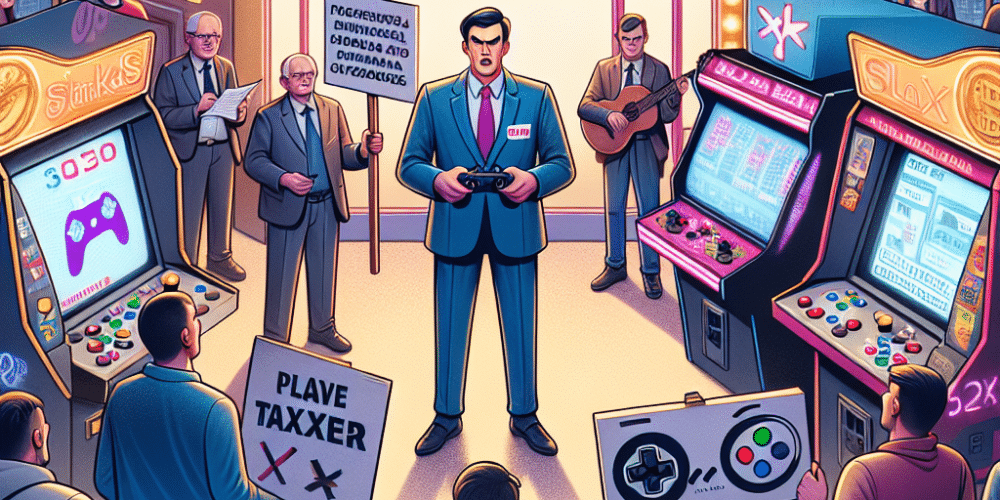In Slovakia, the political landscape is heating up as the Slovakia Movement party criticizes the government’s recent decision to lower proposed fees on gaming devices. The current administration had initially suggested a flat fee of €9,300 for each additional slot machine or gaming table, a figure that has since been slashed to €4,400 for slot machines and €6,000 for video terminals in physical venues.
This move has prompted strong opposition from party MPs Michal Šipoš and Július Jakab, who argue that the reduced fees represent a significant loss in potential revenue for the state. According to their calculations, the lowered fees could mean a shortfall of €52 million, a substantial sum that they believe could otherwise bolster public finances. They see this adjustment not merely as a fiscal oversight but as a “tax bonus” to large gambling operators who, in their view, profit excessively at the expense of the Slovak populace.
“Last year alone, residents lost one and a half billion euros to gambling,” Jakab noted with concern. For him, the profits amassed by these companies are steeped in the hardships faced by individuals, and it is up to the government to impose fair taxes. “We have a government that seems incapable of taxing these companies adequately,” he remarked, pointing to the disparity between company profits and the social costs of gambling.
Šipoš and Jakab suggest looking to neighboring Austria and Poland as benchmarks for more stringent taxation policies. Slovakia currently imposes a flat fee per gaming device, alongside a 27 percent tax on gross gaming revenue (GGR). In contrast, Poland enforces a 12 percent tax on sports betting stakes and a hefty 50 percent tax on net revenue from slot machines and table games. Furthermore, Poland applies a 10 percent withholding tax on gambling winnings, a rate that will rise to 15 percent in January 2026, reflecting a proactive stance on gambling taxation that the Slovakia Movement believes Slovakia should emulate.
This debate coincides with significant changes in the leadership of Slovakia’s Office for the Regulation of Gambling (ÚRHH). Recently, Libuša Baranová has been appointed as the new director general, marking the second leadership change this year. Her predecessor, Jana Mravíková, who took office in April, has been reassigned by Finance Minister Ladislav Kamenický. These changes are indicative of a broader reassessment of gambling regulation in the country.
While the Slovakia Movement pushes for higher fees, the industry warns that such increases could have adverse effects. Higher operating costs might lead to the closure of some gaming halls, reducing employment and decreasing economic activity in those regions. Some industry experts argue that the government’s current proposal aims to strike a balance—ensuring that operators contribute fairly to state revenues without stifling the sector’s growth.
The complexity of gambling regulation is further highlighted by regional dynamics. In Latvia, for instance, the industry has cautioned that a recent tax rise could lead to more venue closures, showcasing the delicate equilibrium policymakers must maintain between fiscal objectives and market sustainability.
As Slovakia navigates these issues, the debate reflects a broader European trend where governments are increasingly scrutinizing the gambling industry. The challenge remains to craft policies that safeguard public interest while recognizing the legitimate business interests of operators. In this evolving landscape, Slovakia’s approach will likely continue to draw both local and international attention, with stakeholders eagerly awaiting the outcomes of these regulatory decisions.

Garry Sputnim is a seasoned journalist and storyteller with over a decade of experience in the trenches of global news. With a keen eye for uncovering stories that resonate, Alex has reported from over 30 countries, bringing light to untold narratives and the human faces behind the headlines. Specializing in investigative journalism, Garry has a knack for technology and social justice issues, weaving compelling narratives that bridge tech and humanity. Outside the newsroom, Garry is an avid rock climber and podcast host, exploring stories of resilience and innovation.
















